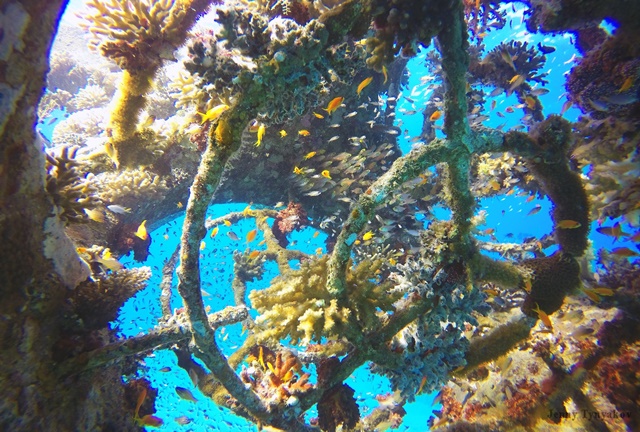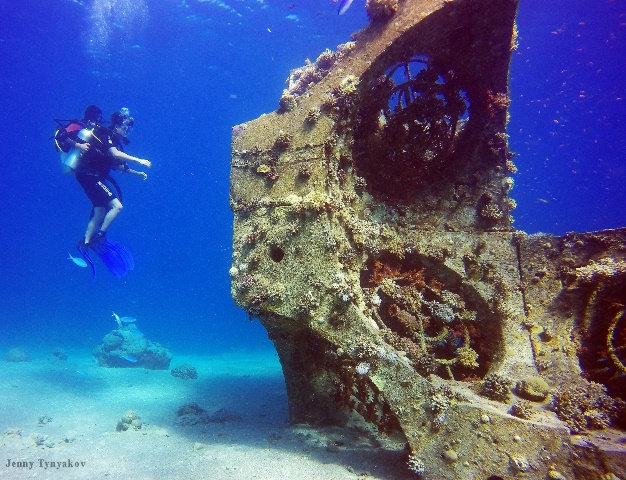Good News for Eilat’s Natural Coral Reefs - Artificial Reefs Proving Increasingly Attractive: Research study of Dr. Yaniv Belhassen of the GGFBM Departmen of Hotel anad Tourism Management, Eilat Campus, BGU marine biologist Prof. Nadav Shashar and his student Meghan Rousseau from South Africa.

The Gulf of Eilat on the southern tip of Israel has some amazing natural coral reefs, which have been threatened by natural and manmade factors. In order to preserve them, artificial reefs have been created and ships deliberately sunk to provide interesting dive spots. Now, a new study from BGU has shown that the artificial reefs and shipwrecks are becoming popular with divers, thereby reducing the pressure on and potential damage to the natural coral reefs.
The study Evaluating the attractiveness and effectiveness of artificial coral reefs as a recreational ecosystem service was publishd in the Journal of Environmental Management.
On the one hand, visitors and divers provide the economic incentive to preserve coral reefs, but on the other hand, they also damage them. The new study examined diving habits and behavior around Eilat's natural and artificial reefs. The research project is comprised of three studies. The first study found that a third of dives in Eilat occur around artificial reefs while The Satil, one of the ships sunk as a diving spot, is Eilat's most popular dive spot. A second study examined divers' behavior around the Tamar artificial reef, one of the most popular artificial reefs in Eilat, and juxtaposed it with divers' activities around two adjacent natural reefs. Findings show that the average diver density at the artificial reef was higher than at the two nearby natural knolls. Moreover, the average number of disturbances per diver at the artificial reef and their severity were significantly higher than at the natural knolls.
“With the opening of the new Eilat Ashkelon Pipeline Co. beach to the public, where it is mostly artificial reefs in the form of pylons, one can hope that the natural reefs in the nature reserve will indeed improve. According to a recent report on the status of the Gulf of Eilat, the natural reefs have not been holding up well in recent years," says Prof. Shashar.
Dr. Belhassen adds that the article offers a new methodology for evaluating artificial reefs around the world, what he has termed recreational ecosystem services (RES). Such an approach takes into account divers' preferences and needs alongside physical preservation of natural reefs. "Artificial reefs are only effective if divers continue to be drawn to them," he notes.
“The City of Eilat should utilize its existing artificial coral reefs to promote and inform its visitors and residents about the opportunities to explore its artificial diving resources," urges Prof. Belhassen.

Photos: The Tamar Artificial Reef (Photo Credit:Dr. Jenny Tynyakov)
The Department of Hotel and Tourism Management is a core part of the Guilford Glazer Faculty of Business and Management since its establishment at Ben-Gurion University of the Negev. The vanguard of hotel and tourism research and studies in Israel, the Department is the only one offering BA, MA and PhD degrees in this field. The unique curriculum imparts relevant and knowledge for the future generation of leaders in the industries of hotel, tourism, aviation, beverage and catering and more. The studies sharpen analytical-business thinking, providing students with experience that prepare them for management, innovation and entrepreneurship in the industries, underscored with leadership, sustainability and social responsibility. The Department has an international reputation for quality research achievements and is ranked among the top 50 in the world by the Shanghai ARWU Global Ranking.